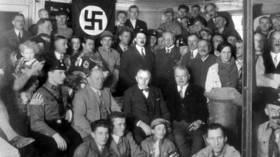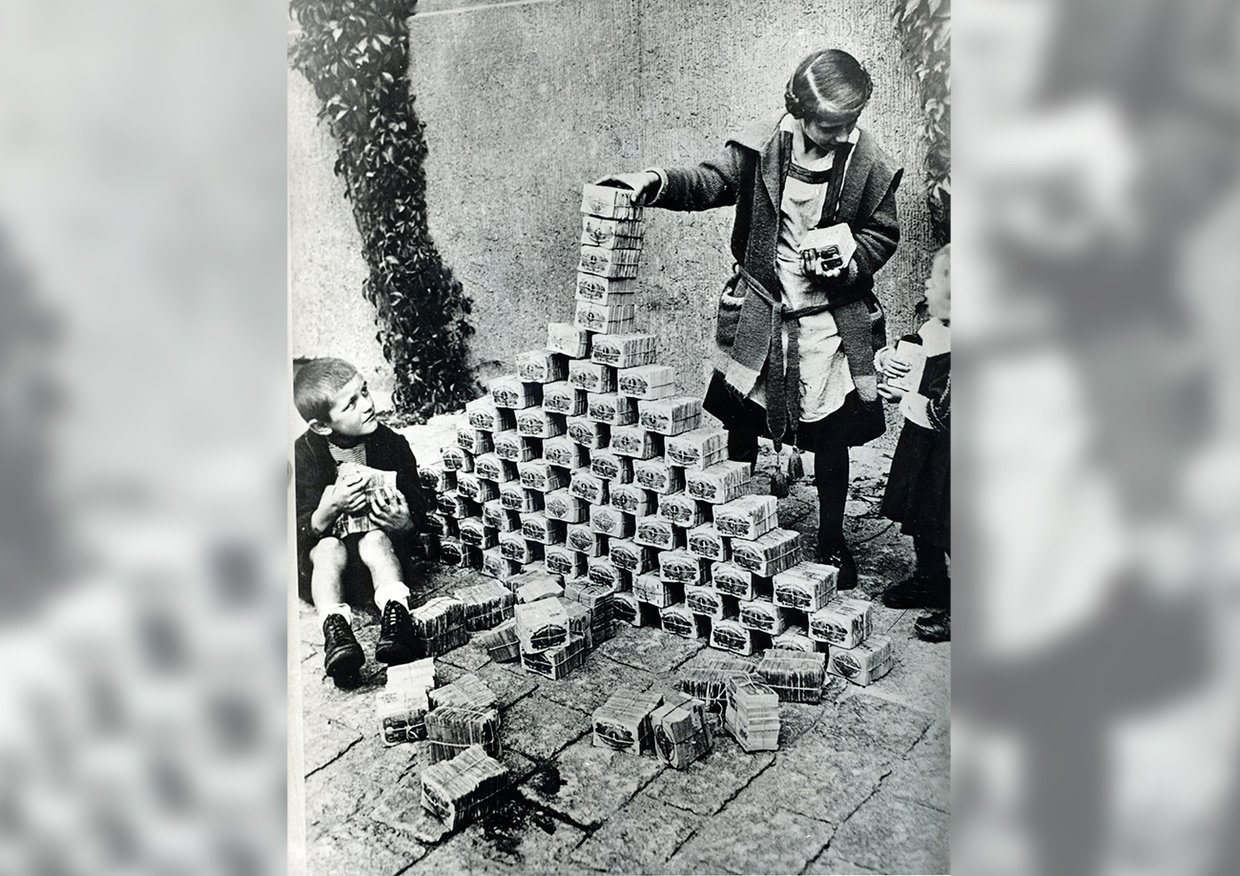US Fed blames rise of Nazis on Spanish flu in preemptive bid to dodge responsibility for post-Covid extremism

The US Federal Reserve has claimed the rise of Nazism in Germany was due to the 1918 influenza pandemic– historical revisionism that may seek to absolve the Fed from responsibility for the fallout from its own disastrous policies.
Influenza deaths during the 1918-1920 pandemic triggered “long-term societal changes” that led Germans to vote for Hitler en masse in 1933, New York Fed economist Kristian Blickle claims in a paper published with the Fed this month. Confusing correlation with causation on such a grand scale would get the average data scientist laughed out of a lecture hall, but Blickle works for the Fed, so his conclusions were reprinted with a straight face in the Wall Street Journal on Monday.
Also on rt.com Federal Reserve’s actions led to ‘total bust’ of US economy, chief strategist tells RT’s Boom BustAttempting to tie the rise of Nazism to a pandemic that happened over a decade before that rise is a tall order, but the Fed has good reason to make the effort. The same hyperinflation that made Germany fertile ground for the rise of Hitler is again looming on the horizon, thanks to the de facto central bank’s decision to pour trillions of dollars into Wall Street and US corporations after the government response to the coronavirus pandemic sent the economy into a death spiral months ago.
Blickle even admits (at first) that the flu deaths are only “correlated” with social changes in Germany, before “conjecturing” – based on data he admits are extremely spotty – that the rise of Hitler was actually the “consequence” of those changes. Because the flu pandemic depopulated cities, he argues, they were unable to spend as much on their inhabitants over the following decade, and therefore their inhabitants flocked to extremist parties a decade later when Hitler was elected in 1933. Eureka! Forget about the financial policies that all but destroyed the country…
The Fed’s breathtakingly simplistic argument leaves out the devastating economic factors most historians cite to explain why extremism took Germany by storm in the 1930s, even after the attempted Nazi takeover in 1923 failed miserably. A massive depression followed World War I as Germany was forced to repay the war costs of the Allies in the wildly unequal Treaty of Versailles – a matter Blickle neglects to mention entirely. The floundering nation was beset by hyperinflation, abetted by privatization and rapacious currency speculation, leading to the iconic images of Germans wheeling carts full of Deutschmarks through the streets to buy a loaf of bread. But just as Germany was starting to recover, with the help of more competent fiscal policy and loans from its former enemies, the Great Depression hit the Allies, leading them to call in their loans and plunging Germany back into depression.

From 1929 to Hitler’s election as chancellor in 1933, unemployment rose from 1.4 million to 6.1 million. The renewed depression fueled enthusiasm for extremist parties on both ends of the political spectrum. Hitler promised a new monetary system that would free Germans from debt peonage, unsurprisingly exciting the working class. While Blickle attempts to link that enthusiasm to latent xenophobia, the reality was more pragmatic – a heavily-indebted nation was willing to vote for anyone promising to remove the debt-collectors’ boots from their necks once and for all.
Blickle makes disclaimer after disclaimer in his attempt to absolve the German banking system of responsibility for Hitler, acknowledging he doesn’t even have data on city spending during “the hyperinflation period before 1925” – i.e. the years following the pandemic he insists was the cause of the Third Reich – and admitting his various data sets don’t match up. He also admits his aim is to piggyback on the rising “importance” of papers “dealing with the effects of the spread of disease on various social and economic outcomes” – i.e. to get his innocence plea in on behalf of the Fed before Americans start searching in earnest for someone to blame.
Also on rt.com Mishandling of Black Death 640 years ago led to the Peasants’ Revolt. It’s time we modern-day peasants rebelled over Covid-19It doesn’t take a political scientist – or a Fed economist – to see the parallels between the modern day US and Weimar Germany. Over 30 million Americans have filed for unemployment since the government response to coronavirus began in earnest in March – a figure that does not include those who have been unable, whether because their state’s system is overwhelmed or their freelance or gig work puts them outside the system, to apply. Protests in those states that have prolonged their lockdowns past the federal guidelines are growing in size and intensity, and the same people who’ve been lining up at food banks for miles trying to feed their families are desperately searching for solutions.
The Fed is likely concerned that an analogous form of hyperinflation will set in stateside, as its repeated bailouts have gone almost exclusively to the wealthy with just a few dollars trickling down here and there to the working class and poor. A single $1,200 check – which many of the neediest Americans still haven’t received – is unlikely to pacify anyone for long. Most Americans had no savings even before the pandemic decimated the nation’s economy, and if any politician were to come along and promise – as Hitler did – to take the money-printing power out of the hands of the private central bank and return it to “the people” (i.e., the government), they’d likely jump at the chance.
Also on rt.com ANOTHER leaked intel report accuses China of ‘intentionally’ concealing coronavirus danger to hoard medical suppliesNews stories warning of a surge in “extremism” have been common during the coronavirus pandemic. Anti-lockdown protesters in Michigan were denounced as “racists” by the governor and mainstream media, even as participants in the demonstrations insisted that the media misrepresented their efforts by focusing on a few inflammatory images. However, the Trump administration’s efforts to pin the blame for the virus on China do appear to have led to an upsurge in race-based attacks on Asian-Americans.
If the Fed is concerned about its hyper-inflationary policies leading to the rise of a new Hitler, perhaps instead of attempting to rewrite history to absolve the financial sector from responsibility for creating the first one, it should avoid repeating the mistakes of post-war Germany.
Like this story? Share it with a friend!
The statements, views and opinions expressed in this column are solely those of the author and do not necessarily represent those of RT.













